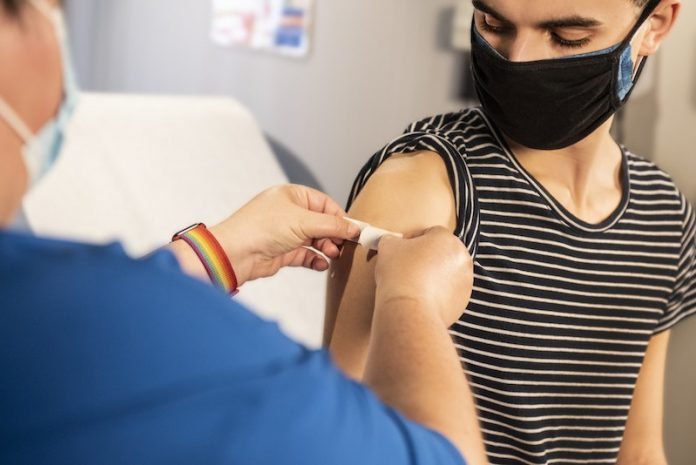
In a new study from Umeå University, researchers found the vaccine-induced protection against SARS-CoV-2 infection wanes within a couple of months, but at a different speed according to vaccine type.
However, protection against severe COVID-19 appears to be better maintained.
In the study, the team used registry data from the Public Health Agency of Sweden, the National Board of Health and Welfare, and Statistics Sweden.
The main analysis included almost 1.7 million individuals, and the results were confirmed in an even larger population of almost 4 million individuals.
The results showed that protection against infection of any severity waned progressively following the peak which occurred a month after the second dose.
Six months after vaccination, the remaining protection against infection was 29% from two doses of Pfizer, and 59% from two doses of Moderna.
There was no remaining protection from months and onwards for AstraZeneca.
With respect to infections that were severe enough to warrant a hospital stay, or where the individual died within 30 days of confirmed infection, the protection was better maintained.
Protection against the severe disease was 89% after one month and 64% from four months onwards during the rest of the maximum follow-up of nine months.
There was some evidence to suggest lower protection in the oldest individuals and in individuals with homemaker service.
The results underscore and support the decision to offer a third dose. In particular, the results show that it was correct to prioritize the oldest and frailest individuals.
If you care about Covid, please read studies about nasal vaccine that may help fight new viral variants, and drug that is effective in treating severe COVID-19.
For more information about health, please see recent studies that poorly managed diabetes increases risk of more severe COVID, and results showing antibodies that can neutralize Omicron.
The study is published in The Lancet and was conducted by Peter Nordström et al.
Copyright © 2022 Knowridge Science Report. All rights reserved.



